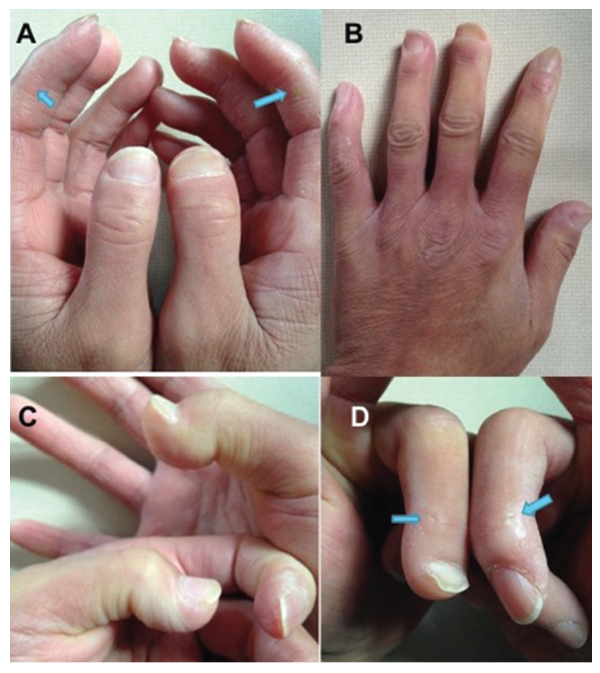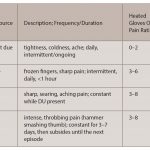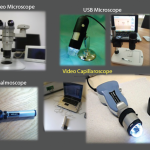Systemic sclerosis (SSc), a subtype of scleroderma, is a rare, complex autoimmune disease characterized by widespread vasculopathy of the small arteries and fibroblast dysfunction.1,2 It has been described as a fibrosing microvascular disease, because vascular injury precedes and leads to tissue fibrosis.3 The resulting Raynaud’s phenomenon, pain, skin thickening and tightening, and multi-organ involvement have a significant impact on daily function.2-7
Two subtypes of SSc: limited and diffuse systemic sclerosis (dSSc). Both types involve Raynaud’s, gastrointestinal dysfunction and cutaneous fibrosis of the face, forearms, hands and fingers, but dSSc is the more severe of the two because it also affects the trunk, lower extremities and internal organs. Moreover, dSSc is progressive and has a 10-year survival rate of about 67%.8,9
A major impact on quality of life for individuals with dSSc is loss of hand function due to pain, Raynaud’s phenomenon, ulcers and acro-osteolysis.3,4,10,11 Caused by pathologic vasoconstriction of the small vessels of thermoregulation and exacerbated by stress and cold, Raynaud’s is usually the first clinical symptom of dSSc.3 It is a source of substantial pain and disability in dSSc.1,3,4,12,13

Figure 1
Manifestations of diffuse systemic sclerosis are visible in the hands: shortening of distal phalanges due to acro-osteolysis in bilateral thumbs (A–C), ring finger (B) and left middle finger compared with the right (D); thumbs fully flexed (C). Note color changes (A–D), overall shortening (B), digital pitting scars (arrows), swollen fingers and tight, shiny skin (A,D).
In addition, and often quite devastating to patients, ischemic digital ulcers (DUs) develop in more than 50% of patients with dSSc.14 DUs are extremely painful and often take weeks to heal.10,11,14‑16 They impair hand function, and to further complicate the disability, these ulcers frequently recur.4,17,18
Another source of pain is acro-osteolysis, the resorption of the distal phalanges of the digits. Acro-osteolysis is associated with the vasculopathy and tissue hypoxia inherent in dSSc.5 This process results in overall shortening of the affected fingers. Loss of function is more pronounced when the index fingers and thumbs are involved.19
There is no cure for dSSc, but there are conservative treatment approaches and drug therapies to manage symptoms and to address internal organ involvement.7,14,20 Current evidence supports the use of vasodilators, such as amlodipine, to reduce vasospasms in Raynaud’s.3 Cyclophosphamide and azathioprine, both immunosuppressants, are often prescribed, yet have no direct benefit to hand function.7,20 Thus, it is important to adopt a patient-centered approach to the treatment of dSSc.


